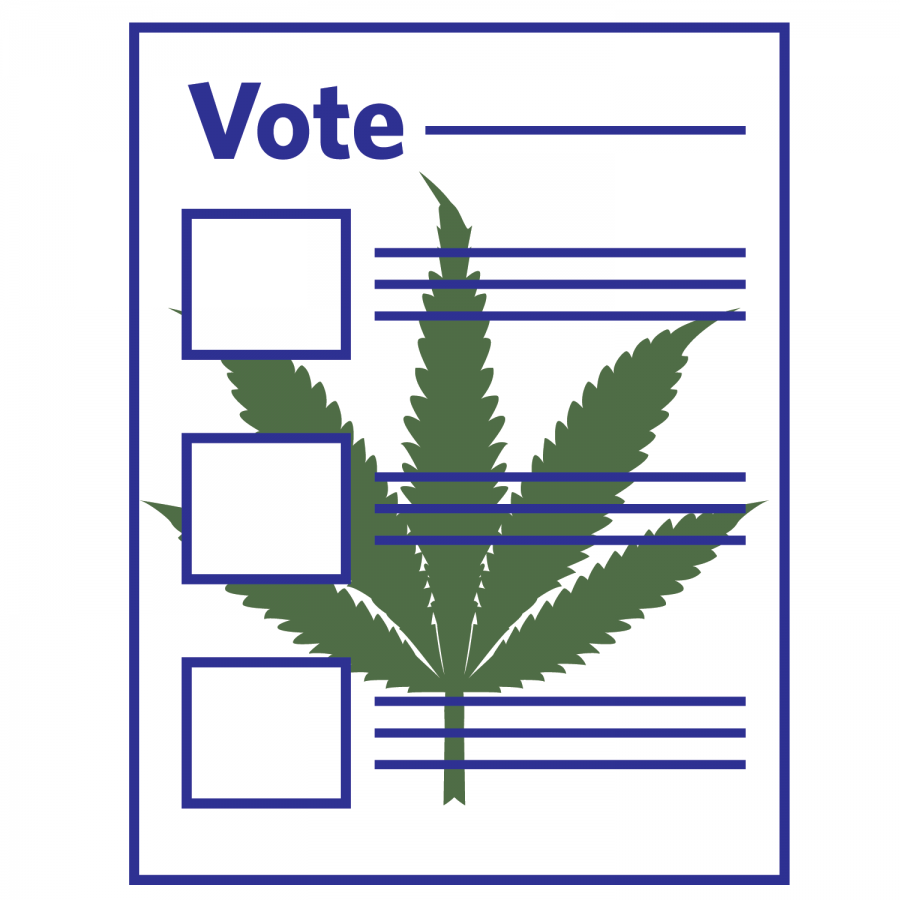Illinois marijuana referendum serves to attract young voters
Mar 13, 2018
A growing number of people across the United States are in favor of the legalization of marijuana. As a result, marijuana has been legalized in nine states (and Washington, D.C.) and decriminalized in 13 other states. One of the states in which it is decriminalized in is Illinois, and soon, it may be the next state to legalize it.
On March 1, the Illinois Senate passed a measure to ask whether the state of Illinois should legalize marijuana for recreational use. It now sits in the house, in which it is most likely to pass, and then goes to Governor Rauner’s desk. Whether he will sign the measure or not is unclear, considering in the past the governor has made statements against legalization.
If the question were to make it onto the ballot, a crucial detail must be understood: this voter referendum is merely advisory. The Illinois constitution does not allow for laws to be enacted by voter referenda, but it does allow for non-binding referenda. This means that the result of the vote is a suggestion to Springfield about what should be done about the issue.
Does this make the vote less crucial? Sure. Does it make it irrelevant? Absolutely not.
If the results of the vote are heavily in favor of legalization, it would serve as a strong suggestion to Springfield by the people of Illinois that they want to be the next state to legalize marijuana and reap the benefits that other states are receiving. However, as aforementioned, Governor Rauner is opposed to legal marijuana, hinting that if he remains in office after this election, the referendum may prove meaningless even if a vast majority of Illinois votes in favor of legalization.
Get The Daily Illini in your inbox!
This is where political strategy plays a role. For every policy that is established, or rhetorical statement that is made, there’s usually a political reason for it. This is no exception.
The idea for placing this question on the ballot is crafted by Democrats in attempt to draw out young voters; nearly 70 percent of millennials believe that marijuana should be legalized. Since youth voter turnout is historically the lowest of the age groups, the strategy is that by placing an issue that is highly advocated for by young people, whether political or apolitical, it will draw them to the polls.
Young people tend to be more liberal, and for those who may be single-issue voters, such as with marijuana, the average young person is more likely to vote for whoever has a “D” by their name. It helps that the two front-runners for the Democratic primary for governor, J.B. Pritzker and State Senator Daniel Biss, are both in favor of legalization.
That is not to claim that Democrats having a strategy behind this referendum makes it nefarious or any less meaningful. Every political action has a strategic reason behind it. The situation should be viewed as a potential for mutual benefit for both Democrats and legal marijuana advocates, 74.4 percent of whom are in Illinois.
If Senator Biss or Pritzker wins the governorship this fall, likely by defeating Governor Rauner, the advisory referendum could have a real chance at catalyzing legislation that could make Illinois the next state to legalize recreational marijuana.
Austin is a sophomore in Media.
aas3@dailyillini.com






